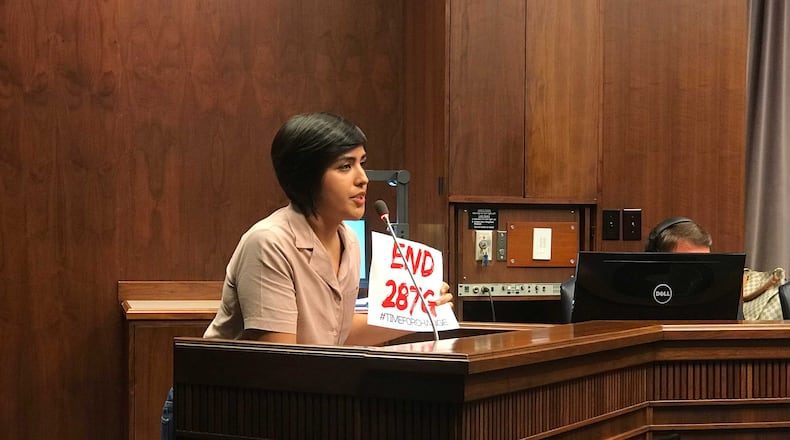Cobb Sheriff Neil Warren has renewed a controversial immigration enforcement program, continuing his hard line on immigration as county officials tread carefully around it.
The 287(g) program allows local law enforcement to investigate the immigration status of detained individuals they suspect of being in the country illegally. It does this by deputizing local officials to assist with federal immigration enforcement.
Critics say the screening process amounts to profiling and makes immigrant communities distrustful of law enforcement.
“Sheriff Warren stands by his decision in participating in the 287(g) program to protect the citizens of Cobb County from those who have been charged with a crime,” according to a statement from his office.
Cobb was the first jurisdiction in Georgia to join the program in 2007. Warren has continued it since and easily won reelection in 2016, despite a leftward shift that saw Donald Trump lose Cobb.
Although county commissioners do not vote on the agreement, three out of five board members expressed personal support it.
“I support the Sheriff’s efforts,” said East Cobb Commissioner JoAnn Birrell.
Commissioners Bob Ott and Keli Gambrill expressed similar sentiments.
Chairman Mike Boyce declined to comment, deferring to a generic county statement saying the sheriff “has a great deal of latitude when it comes to his budget and operations.”
“Any decision about participating in the 287(g) program would be the Sheriff’s alone,” it said.
South Cobb Commissioner Lisa Cupid, who is challenging the chairman for his seat in 2020, said she has serious concerns about the 287(g) program.
“When people are afraid to reach out to law enforcement over fear of deportation, over this program, it makes me take a step back and pause,” Cupid said. “The Sheriff has been participating in this program for some time and I hope that he’s mindful of the concerns of the community at large.”
Cobb’s director of public safety, Mike Register, who up until recently was the police chief, did not respond directly to questions about 287(g). Instead, he emphasized that he does not speak for the sheriff, who is an elected constitutional officer.
“The Cobb County Police Department does not actively target any segment of our community, to include undocumented persons,” Register wrote in an email. “We do, however, enforce the law in an unbiased manner as needed to ensure the safety of our community.”
Marietta Police Chief Dan Flynn said he has not commented on 287(g).
“I have maintained that when immigrants are a victim of or witness to a crime, we do not inquire about their immigration status,” he said in a statement. “That is so they are not discouraged from reporting a crime. Suspects are still subject to 287(g) as they have always been.”
Last week, a handful of activists from across the metro area spoke against 287(g) during a Board of Commissioners meeting.
Claudia Andrade said she grew up in Cobb County and felt integrated into the community, except when she and her family encountered law enforcement.
“287(g) affects me personally but also the working class black and brown community at large,” she told the board during public comment. “It increases racial profiling and human rights violations within Cobb County.”
D.A. King, a well-known anti-illegal immigration activist from Marietta, spoke in favor of the program.
"The concept that 287g somehow makes our community less safe points to the absurdity of the anti-enforcement arguments," he said.
Carlos Garcia, the director of the Pro-Immigrant Alliance of Cobb County, said he was opposed to the program, but prefers to work behind the scenes.
“Our approach is not so much as making a public statement or being radical,” he said. “We’re trying to work along with our elected officials, along with law enforcement to diminish the damage against our community and the trust we’ve been working so hard to build.”
In response to a question about how much the program cost Cobb, Glenn Daniel, a spokesman for the Sheriff’s Office, said the agency had no cost break-out.
Daniel referred a question regarding the number of deputies assigned to the program to ICE.
About the Author
Keep Reading
The Latest
Featured


